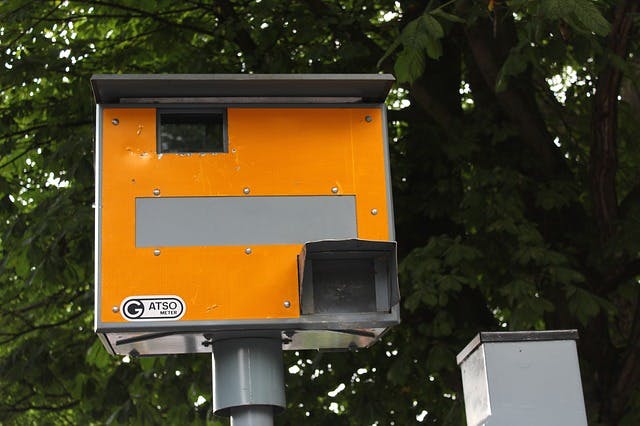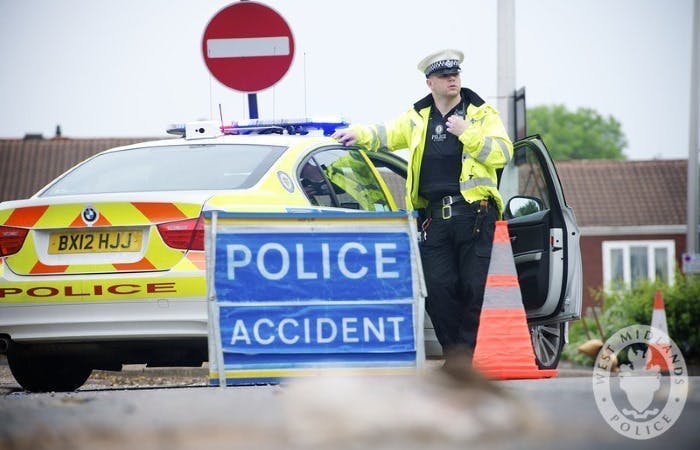
When we think about speed limits, we tend to think about the maximum speed that you are permitted to travel on different roads, and the type of vehicle you are driving. We all understand the need for keeping to a restricted speed: the safety of ourselves and other road users is at stake. We also understand that exceeding the speed limit can result in points on your licence, a fine, or even disqualification from driving. But can you be penalised for going too slowly? We’re going to be taking a look at how you know when there is a minimum speed limit in place, how it is justified, and what the consequences are of breaking it.
Why would there be a minimum speed limit?
While uncommon, there are certain countries that do impose a minimum speed limit as part of their driving law. Various roads in Japan, the Republic of Ireland and the USA are all subject to minimum speeds.
Just as their maximum counterparts, minimum speed limits are designed to increase road safety. Instead of accelerating and braking, keeping vehicles above a certain speed helps to keep traffic moving. This is particularly important when stopping traffic may cause problems for emergency vehicles to get through: in tunnels, for instance.
Driving too slowly can also impede the safety of other drivers. When on the roads, we all have a duty to try to anticipate the movement of others. Driving particularly slowly can cause a hazard to other motorists, who may not have correctly assessed their speed. It can force harsh braking, increasing the risk of a pile-up. It also encourages actions like tailgating or unsafe overtaking, particularly if a queue builds up behind the slow driver, and there is peer pressure involved.
Hungry for more driving knowledge? Why not find out about the differences between driving in Europe and the UK?
Does the UK have minimum speed limits?
Despite calls for more minimum speed limits in the UK stretching back several years, there are not, currently, many such restrictions in place; roads that do limit MPH—such as the Mersey Tunnel—can be identified by a sign. Similar to maximum speed limit signs, in that they are circular and contain a number, they can be differentiated by colour. Instead of the vibrant ‘red’ that we are more used to seeing (signifying prohibition) minimum speed limit signs sport the a rim of blue. Blue signs are an indication of a mandatory instruction—in this case, ‘You must drive faster than this specific number in miles per hour’.

A minimum speed limit sign shows a number within a blue circle
The end of the lower restriction is communicated by the same sign, with the addition of a red, diagonal line through it.

A diagonal red stripe indicates the end of a minimum speed limit
Myth-busting: is there a minimum speed limit on the motorway?
Many people think that there is a minimum speed limit on motorways or dual carriageways in the UK. Currently, this is not the case. However, as we will see later, there are several driving laws in place which do have the knock-on effect of penalising motorway driving that is too slow. It may be in the future that we will join the likes of America, where it is common to see a minimum speed limit sign for major highways. Indeed, this is something that has already been proposed: a failed petition called for a minimum speed limit of 60mph back in 2011.
Are minimum speed limits enforceable?
Perpetrators caught speeding will usually be given points on their licence and a fine. This may happen even if you're driving just above the speed limit. Such punishments have recently increased: more speeding motorists are now subject to higher fines, which bear a direct relation to difference in your speed to that of the limit, as well as your weekly income. Aggravating or extenuating factors can cause the amount you pay to be increased or decreased. Depending upon the severity of the offence, you may be given the option to avoid the points and fine by completing a Speed Awareness Course instead, or—at the other end of the spectrum—receive a disqualification from driving.
But is the enforcement of low speeds so punitive too? The short answer is no. That’s not to say that minimum speed limits aren’t legally enforceable; they are. But there are no slow speed cameras at present to catch motorists who are travelling too slowly.
It’s possible that one of the reasons for this is that strict enforcement of this law also throws up a number of exceptions: in any situation where you are impeded, then you would be able to offer a valid defence. This would include being stuck in traffic: you shouldn’t be penalised for crawling along in a queue (albeit a rare situation, as the very purpose of minimum speed limits is to prevent this). Likewise, if you are forced to brake for a hazard, the minimum speed limit shouldn’t be enforced either. It is likely that money spent on catching perpetrators of the offence would be increased exponentially when you take into account the cost of deciding contested cases. Not the most justifiable use of public funding.
On the other hand, just because drivers may commonly be able to break a speed limit without being sanctioned, this is not a valid defence, should you be penalised for disobeying it.

When else could you be penalised for going too slowly?
Simply because a road does not have a specified minimum speed limit doesn’t mean that you won’t be subjected to some unwanted police attention if you’re going particularly slowly. We've already discussed how driving too slowly can cause dangers for other drivers; you could even cause a pile-up as cars slam on their brakes to avoid you.
If you’re driving on a clear motorway at 30mph, for instance, you’re likely to be pulled over. Depending on the circumstances, you may just be given a verbal warning. Alternatively, you may be considered to be driving carelessly, inconsiderately, or even dangerously—which could warrant prosecution.

Sometimes minimum speeds are protected vicariously—through other legislation. On motorways, for instance, there is a prohibition on vehicles that are unable to maintain 25mph, when unladen, on level ground. Similarly, the illegal act of undertaking—reinforced by the recent move to crack down on middle-lane hogging, not only helps to ensure that motorists respect the use of different lanes, but also rules that slower drivers must keep to the left. And even though an exact minimum speed is not stipulated, the effect is not undermined. By assessing the relationship of your speed to others’, police can largely determine whether you are driving considerately; if you are travelling a lot slower than other traffic within the speed limit, then you should have a valid reason for doing so. Remember, safety is of the utmost importance on the road—as covered in the history of the Highway Code. Anything that threatens someone's safety will have repercussions.
What this all means in reality
When all's said and done, what this all really means is that travelling safely goes beyond the bare minimum of following road sign instructions. The duty is imposed upon us the moment we step into the driving seat—and when we pass our test, that responsibility becomes all the greater. That's why the changes to the practical test are so important: they should help to prepare people better for driving independently. Whether the road has an explicit minimum speed limit or not, we should all be mindful and considerate when driving, and, most importantly, drive for the conditions.
So, that's the minimum speed limit law covered. But are you up to speed on your other road signs? Take out ultimate quiz to find out or revise with our compilation of top theory test revision resources. Also, did you know about the new manoeuvre that was introduced to the test in 2017? Don't get left in the dark!
Subscribe for driving advice, offers & more
We'd love to let you know about our courses, news and offers via email. You may unsubscribe at any time.
Star Genie Limited trading as PassMeFast. Company number 10093359
Copyright © 2024 owned by Star Genie Limited
PassMeFast, Blue Tower, MediaCityUK, Salford, M50 2ST
